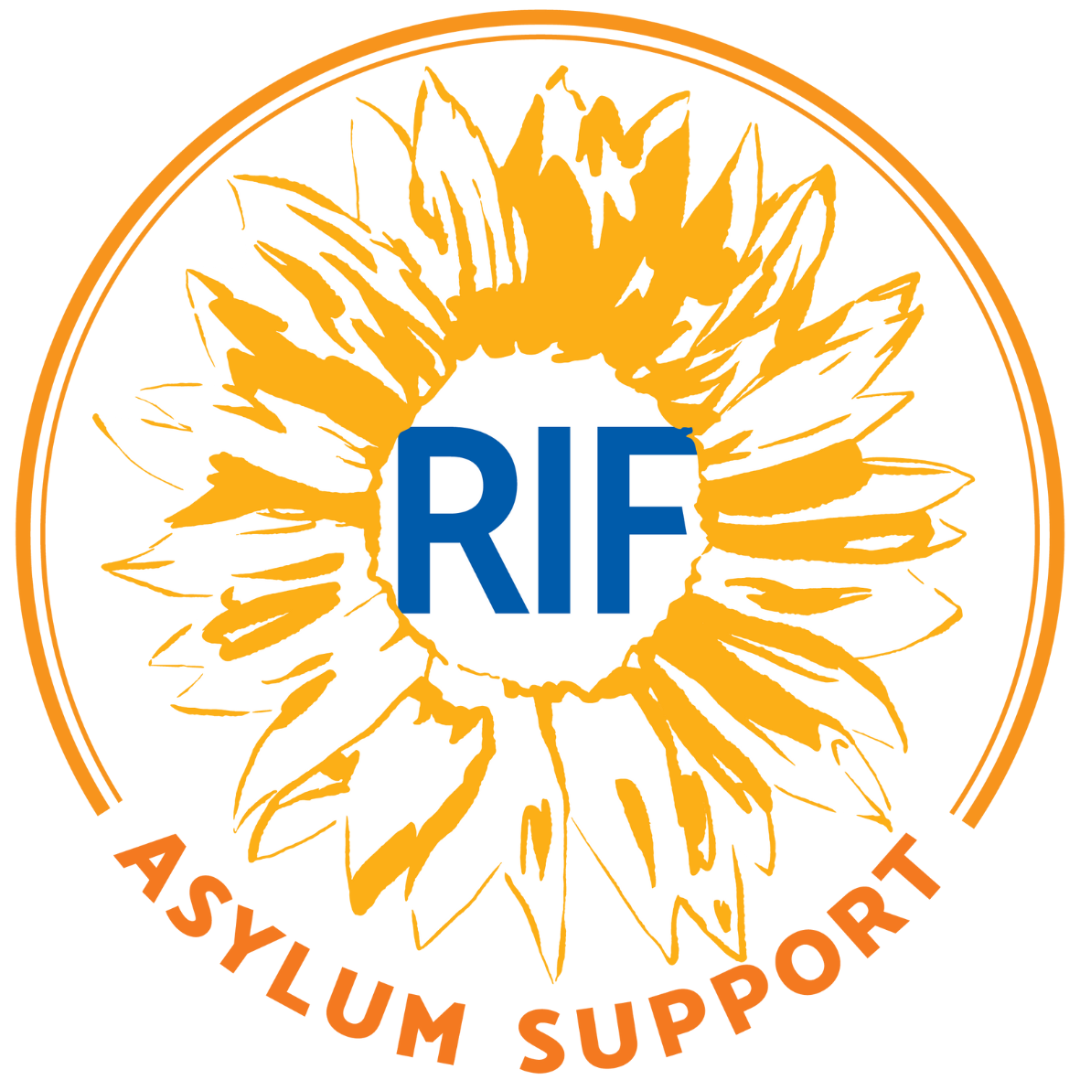Two RIF members embrace at a RIF community meeting in 2019.
COVID-19 forced many of us to keep our distance from loved ones this past year. Visiting elderly parents and grandparents was not safe. Family gatherings and religious celebrations took place over Zoom. The vaccine offers us hope that soon we’ll be able to embrace our family members. But for many New Yorkers, the experience of being separated from family members is not new.
There are an estimated 80,000 asylum seekers in New York City who are waiting for their asylum interview. Caught in the multi-year backlog in asylum cases, many are experiencing years of excruciating separation from loved ones with no end in sight.
The asylum application is done through either the affirmative or defensive process. Affirmative asylum seekers enter the United States with a visa and later submit an asylum application to their local asylum office. Asylum seekers who present themselves at a port of entry or irregularly between ports of entry are allowed to request asylum but have to argue their claim at immigration court. Many of the asylum seekers that RIF serves in New York City are going through the affirmative process. They are professionals who secured visas to visit the United States, some to present their work at conferences. Others were invited by the State Department to share about their activism back home. This was work that they paid an ultimate price for - having to flee their homes and loved ones. Many recall leaving their houses in the middle of the night, something few could have imagined in their wildest dreams, until it happened. Some left thinking they would just travel for a few weeks then be able to return.
A recently-reunited family participates in a RIF presentation in 2018.
For those unable to return home, asylum in the United States offers a promise for a new life. Many of our members share their relief when they submit their asylum applications: relief that their lives are safe but also that they’ll soon be reunited with their family members who were not able to secure visas to join them, an especially common circumstance for asylum seekers who had to leave their country abruptly. Once in the United States, asylum seekers need to wait to receive their asylum decision before their family members can join them. This can take years. The two asylum offices that serve New York City are only now processing cases submitted in 2016 and 2017. As those applicants wait, they watch their children grow up over video chat.
There are several factors contributing to the current backlog in affirmative asylum cases. The backlog began growing in 2012 when understaffed asylum offices had to divert resources to help process the influx of migrants at the U.S.-Mexico border. The backlog was further aggravated by the Trump Administration’s anti-asylum policies. One of them was an interview scheduling protocol known as “LIFO,” or “last in, first out.” This policy, still in effect today, means that the most recent applicants will be interviewed first and those who have already been waiting several years will be interviewed last.
Despite their resilience, many asylum seekers’ mental health deteriorates during the wait for their interview. In our weekly support group, members share their mounting hopelessness, powerlessness, and desperation. The most heart wrenching stories come from parents, who share their guilt at not being able to protect their children; their anguish when their children question their absence. Just as COVID-19 has exacerbated so many of the difficulties we face in daily life, parents who have lost their jobs and with that their capacity to send money home to family members are weighed down by renewed despair. One of our members recently told us:
“We come to the U.S. with so much burdening us. We seek asylum for a chance at a safer life. We need help, not more hardship.”
For many asylum seekers, organizations like RIF provide a sense of connection and community as they get to know a new city, often far away from their personal support networks.
Some of our happiest moments at RIF have been celebrations to welcome family members who are finally able to reunite after an asylum victory. Unfortunately, those celebrations are far too rare. One celebration in particular was for Moussa, who after five years of waiting for his asylum interview, was reunited with his wife and five-year-old son, Moha, whom he had never met. When Moussa had to flee his country because of his political activism, his wife was five-months pregnant. Since being reunited in December 2019, Moussa and his wife have had two adorable little girls. (We call them reunification babies!) Moha is thriving in primary school, named student of the year!
There are many aspects of the asylum system that need reforming, and reform will require all hands on deck. For our part, we want to shed light on this largely unknown aspect of the asylum system: the backlog in affirmative cases and the long family separations that result from it. In another blog, we plan to share some potential solutions drawn from our day-to-day experience working with asylum seekers. In the meantime, we continue to do our best to provide comfort and hope for our community members.
*Names have been changed to protect the privacy of those mentioned here.




